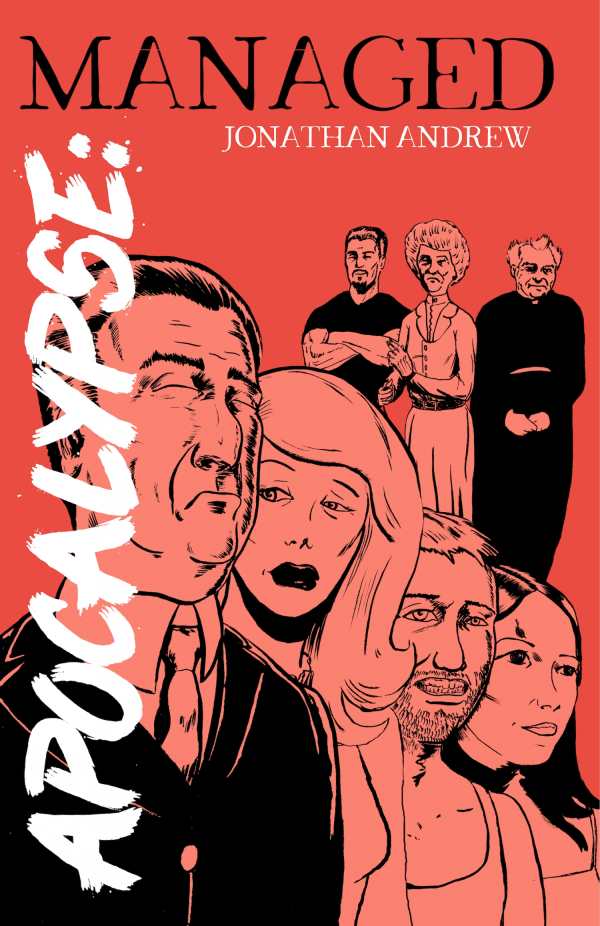
Apocalypse: Managed
An engaging, ragtag group makes their way through a changed landscape in Apocalypse: Managed, an eccentric end times novel.
In Jonathan Andrew’s amusing farcical novel Apocalypse: Managed a British middle manager defends his choices.
The book opens in an outlandish fashion, with Bigcorp employee Edward waking up to the news that the Christian apocalypse began while he was sleeping. He decides that he needs a gun, and so turns to his friend, Bobcat, for help. Edward narrates with mild efficiency, observing as his oddball companions gather under his questionable leadership.
The book’s exaggerated characterizations enhance its situational absurdity. Edward is a stalwart countryman who thinks better of himself than is warranted—a disconnect that allows him to compare his portliness to that of “Churchill or Thomas Aquinas.” His everyman, confident mindset carries him through dire situations. Edward’s wife Audrey is genial, while Bobcat is a backwoods American. Edward’s companions also include Elena, a Spanish Catholic who displays courage with a crossbow, and a underused demon whose resignation and empathy for his human travelers is entertaining.
The story mixes strange happenings with mundane events, and brings its cast together via elements like a vision of Mary in a pile of potatoes and a television trivia challenge. As background terrors erupt, the group improvises their way toward a church. There, a secondary cast gathers for refuge, including a finicky parish secretary, a modern and muscular sexton, a doddering vicar with a pet fish, and Audrey. Both groups represent a fascinating cross section of responses to crises: some cling to their habits for reassurance, and others try to be resourceful, if not at peace.
Edward’s group alternates between voicing their exasperated misgivings and expressions of gratitude for their relationships. Their deadpan exchanges are plentiful and filled with personal details relating to faith. When they foray into abstract topics, however, like the differences between traditional Christian views and how modern Christians value freedom, their discussions are an impediment to the story. Their passing remarks about hot topics, and their assumptions about UK Muslim immigrants, are also too offhand. However, the contrast between Edward’s stereotypical stiff upper lip and his sense that avoiding death is futile is clear and wry.
Once Edward’s group arrives at the church, the book comes to a swift, clever, and silly close. The final act represents a parable about human approaches to God, though its shift into deep reflection is an abrupt one.
An engaging, ragtag group makes their way through a changed landscape in Apocalypse: Managed, an eccentric end times novel with an original take on what it’s like to confront the prospect of paradise.
Reviewed by
Karen Rigby
Disclosure: This article is not an endorsement, but a review. The publisher of this book provided free copies of the book and paid a small fee to have their book reviewed by a professional reviewer. Foreword Reviews and Clarion Reviews make no guarantee that the publisher will receive a positive review. Foreword Magazine, Inc. is disclosing this in accordance with the Federal Trade Commission’s 16 CFR, Part 255.
